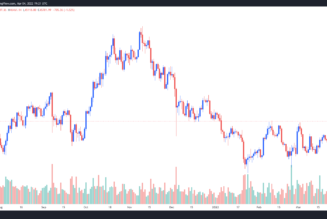
The cryptocurrency market has now expanded significantly, which has caught the interest of both cryptocurrency investors and hackers who seek to access the wallets of crypto aficionados. The development of hacking tools has given cybercriminals a variety of ways to get into people’s wallets.
You may stop fraudsters from accessing your money by following the appropriate measures and protocols. You must understand how wallet security might be breached to stop hackers from gaining access to your cryptocurrency assets.
Today, we’ll demystify a few techniques with which you can make your crypto wallets secure. Stay hooked!
What security risks affect cryptocurrency wallets?
The use of a bitcoin wallet carries many possible security hazards. One danger is that the program or app might have security holes that would allow hackers to access the wallet. This may happen if the wallet is a “hot” wallet, which means it’s online and accessible from a computer or mobile device.
Some wallet programs could also provide options for exporting private keys, which, if misused, might raise the risk of theft. Another risk is the potential loss of wallet access if login information is forgotten or a mobile device connected to the account is misplaced or stolen. If the proper security measures are not in place, web-based wallets like those provided by Coinbase might potentially be attacked.
Finally, if the data is not encrypted or adequately protected, desktop wallets, which enable users to access their private keys from their computers, may be in danger. You can use trading bots like the crypto boom to avoid risks.
8 Techniques to secure your account
If you use a few tips given below, you can keep your account safe. Let’s explore these in detail:
1. Use multiple wallets
Restrain from keeping all of your cryptocurrency in one wallet. For example, you should have a wallet for everyday transactions, one for airdrops, and one for your primary portfolio. This is one of the greatest strategies to safeguard your cryptocurrency wallet when it comes to minimizing the effects of any hacker activity on your wallet. To avoid catastrophic losses, you should spread out your bitcoin assets among many wallets.
2. Consider using a secure internet connection
A hacker can get access to your device if you use a public Wi-Fi network or an unsecured network. Use a secure internet connection and a VPN for the highest level of protection whether trading online or using your crypto wallet. A VPN’s job is to protect your surfing activity from hackers and to assist in changing your IP address and location.
3. Change your passwords frequently
Hackers may find it quite simple to guess your password and get access to your cryptocurrency wallet if you are known to use a specific password across many different locations or websites. One of the solutions to “how to safeguard your crypto wallet” is to routinely change your password and use unique/complex passwords. Utilize two-factor authentication (2FA) if it’s an option on your device or wallet to further increase security against hackers. You might use an online password manager, which can always create really strong passwords, to prevent password repetition.
4. Never share your private keys
Users of bitcoin wallets should take precautions to safeguard their private keys and digital assets. There are many different wallet kinds available, each with special features and advantages, including mobile, desktop, web-based, and hardware alternatives. Users should think about incorporating extra security precautions like strong passwords and two-factor authentication, as well as selecting a wallet that maintains private keys in an encrypted format, to help reduce the dangers related to using a digital wallet. Users may assist guarantee that their private keys stay safe and lessen the chance of theft or loss by adopting these actions.
5. Keep your device safe
Make sure your device has the most recent virus definitions installed to protect against recently found vulnerabilities. Improve the security of your device by using a powerful anti-virus and firewall to stop hackers from building programs to exploit the hole.
6. Beware of phishing
Phishing is another method that hackers use to access people’s cryptocurrency wallets and take their coins. To steal cryptocurrency from unsuspecting people, hackers often employ fraudulent emails and advertising that you click on. Hackers spoof the original crypto company’s email or advertisement to trick people into entering their security keys and other sensitive information.
7. Protect local devices
Your cryptocurrency wallet is vulnerable to theft if your computer or mobile device is not secure. Additionally, put firewalls and antivirus software on your device to fend against viruses and online attacks. Enable fingerprint or face detection features on your smartphone if they exist for optimal security.
8. Use a cold wallet
You can use two techniques to keep your bitcoins, including a hot wallet and a cold wallet. When you utilize a cold wallet, the probability of threat becomes very low. Even exchanges, like the Japanese exchange BITpoint, claimed in 2019 that their cold wallet was unaffected when they had a cyberattack. Cryptocurrency cold wallets are encrypted, which preserves your secret keys and prevents anybody else from accessing them except for you.
How intruders steal crypto wallets?
There are so many techniques that intruders use to steal your crypto wallet. A few of them are as follows:
Phishing
Phishing occurs when a fraudster sends unsolicited emails requesting the login details for a user’s cryptocurrency account. The hacker might propose rewards in return for money to get unauthorised access to a person’s digital assets.
Financial fraud
A hacker creating a fake replica of an authentic crypto trading platform, it becomes a financial fraud. To convince users that the platform is trustworthy, they may post fake social media adverts that seem like real job openings. There may be so many scam artists tasked with contacting individuals about bitcoin investments for larger-scale hacking activities. Once the victims accept bitcoin deposits, the hackers may allow them to swap cryptocurrency.
However, they can’t receive their investment returns due to extra fees, taxes, or waiting periods designed to prevent customers from realising they have been duped.
Malware
Malware is one of the oldest hacking techniques, but if given the time to develop, it may still be beneficial. Keyloggers are installed on a user’s device by hackers, who may then see the passwords and PINs the user inputs. The answer is “yes” when people ask “can your crypto wallet be hacked by malware? ”
Hackers employ the cross-scripting method to direct visitors to another Web page to capture sensitive information from them.
Can you get your stolen crypto wallet back?
Deposits made in cryptocurrencies are not covered by insurance. As a result, it might be difficult to recover your money from cryptocurrency fraudsters as many crypto assets are not governed or overseen by the government. Even in these cases, retrieving your cryptocurrency is still impossible. There are certain cryptocurrencies and crypto platforms that have the infrastructure in place to report and investigate these types of instances. It indicates that after stolen cryptocurrency has been withdrawn from your digital wallet, it is generally unlikely that you will be able to retrieve it.
In the end, purchasing and selling cryptocurrency is “caveat emptor” – at the owner’s risk. Users are ultimately responsible for protecting their cash against cryptocurrency hackers and con artists.
Conclusion
Cybercriminals have been searching for a technique to access people’s cryptocurrency wallets since the beginning of the cryptocurrency sector and stealing from them. You may improve the security of your wallet by being aware of potential threats, such as Phishing, the theft of secret keys, and tampered SMS verification. You can safeguard your cryptocurrency wallet from hackers by using a cold wallet, creating a strong password, and using a secure internet connection, among other measures.









